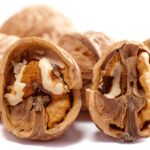
In this article
Overview
When it comes to maintaining overall health, our diet plays a crucial role, impacting everything from our heart to our skin. However, one often overlooked aspect is how certain foods affect our lung health. Breathing is fundamental, yet we rarely consider how our dietary choices can either support or hinder our respiratory system. In this article, we’ll explore which foods can boost lung function and which ones might cause harm, helping you breathe easier with every meal.
Boost Your Lung Health with These Nutrient-Rich Foods
Fiber-Rich Foods
Foods like raspberries, peas, lentils, and black beans are not just delicious; they are also packed with fiber. Studies indicate that individuals who consume more fiber tend to have better lung function compared to those who don’t. Incorporating other high-fiber foods such as whole-wheat spaghetti, baked beans, chia seeds, quinoa, pears, and broccoli into your diet can significantly benefit your lungs
Related : Simple Steps to Boost Bone Health
The Coffee Advantage
For coffee enthusiasts, there’s more good news than just a caffeine kick. Regular coffee consumption has been linked to healthier lungs. The anti-inflammatory properties of caffeine, coupled with polyphenols’ antioxidant effects, can help maintain lung health. So, that morning cup of joe might be more beneficial than you thought.
Whole Grains
Whole grains, including brown rice, whole-wheat bread, oats, quinoa, and barley, are essential for lung health. These foods are rich in fiber, antioxidants, and anti-inflammatory properties, as well as vitamins E, selenium, and essential fatty acids, all of which contribute to healthier lungs. In contrast, refined grains like white flour and white rice lose many of their beneficial nutrients during processing
Berry Boost
Berries such as blueberries and strawberries are not only tasty but also powerful allies for your lungs. They contain anthocyanin, a flavonoid that gives these fruits their vibrant color and has strong antioxidant properties. Research suggests that these pigments can slow the natural decline of lung function as we age. Including at least two servings of berries a week in your diet could help maintain your lung health.
Leafy Greens
Spinach, Swiss chard, and other leafy greens are packed with carotenoids, antioxidants that may reduce the risk of lung cancer. Studies have shown that certain greens, particularly Chinese varieties, are especially beneficial for lung health. Adding a variety of leafy greens to your diet can provide a significant health boost.
Foods to Avoid for long health
Processed Meats
Bacon, ham, deli meats, and sausages are often part of our regular diet, but these processed meats can be detrimental to lung health. The nitrites used in curing these meats can cause inflammation and stress in the lungs. Reducing or eliminating processed meats from your diet can help protect your respiratory system
Related : Cold vs. Flu: to Symptoms, Causes, Treatments, and Prevention
The Pitfalls of Excessive Alcohol
While moderate alcohol consumption, particularly wine, might have some benefits, heavy drinking can negatively impact your lungs. Sulfites in alcohol can exacerbate asthma symptoms, and ethanol can harm lung cells, increasing the risk of pneumonia and other respiratory issues. Limiting alcohol intake to two drinks or less per day can help maintain lung health.
Sugary Drinks
Soft drinks and other sugary beverages are not just bad for your waistline; they can also harm your lungs. Studies have found a correlation between high consumption of sweetened soft drinks and increased rates of bronchitis in adults and asthma in children. Opting for water instead can make a significant difference.
Salt
High sodium intake can lead to long-term bronchitis and worsen asthma symptoms. Reducing your salt consumption, cooking from scratch, and avoiding processed foods can help improve your lung function. Aim for a daily intake of 1,500 to 2,300 mg of sodium, as recommended by health experts.
Nutrients for Lung Health
Protein
Proteins are essential for the body’s immune function and respiratory health. Including lean meats, eggs, and beans in your diet can help strengthen your lungs by supporting the production of immune system cells.
Complex
Complex carbohydrates, found in whole-grain bread, pasta, and fresh produce, provide essential fiber and energy. Unlike simple carbohydrates, which can lead to obesity and hypertension, complex carbs support overall health and lung function.
Potassium
Potassium helps regulate blood pressure, reduce water retention, and improve digestion, all of which are beneficial for lung health. Bananas, leafy greens, tomatoes, and beets are excellent sources of this vital mineral.
Breathe Easier with Better Choices
Maintaining lung health through a balanced diet is within everyone’s reach. By incorporating fiber-rich foods, whole grains, berries, leafy greens, and proteins into your meals, and by reducing processed meats, sugary drinks, and excessive salt and alcohol, you can support your respiratory system effectively. Remember, every breath you take can be healthier with the right dietary choices
Lung Health in Daily Life
Highlight why lung health is essential not only for those with respiratory issues but for everyone. Explain how good lung function affects energy levels, stamina, and overall well-being. This section could motivate readers to take lung health seriously and implement the dietary changes suggested in the article.
Common Habits that Harm Lung Health
Add a section on lifestyle habits beyond diet that may harm lung health, such as smoking, exposure to pollution, and lack of physical activity. This would provide a well-rounded view on lung care and encourage readers to be mindful of daily practices that can impact their lungs.
Lung-Friendly Cooking Tips
Provide practical tips for preparing lung-healthy meals. Suggestions might include opting for steaming or grilling instead of frying, using fresh herbs instead of salt for flavor, and ways to incorporate more fiber-rich foods like whole grains and vegetables.
Foods and Habits to Support Lung Detox
Introduce foods that may aid the lungs in clearing out toxins, such as ginger, garlic, and turmeric. Explain how certain foods have detoxifying properties and how hydration plays a role in maintaining clear airways
Related : Home Remedies for Vertigo: Natural Ways to Relieve Symptoms and Restore Balance
Breathing Exercises for Lung Health
Suggest simple breathing exercises that can be paired with a lung-friendly diet. Exercises like deep breathing, pursed-lip breathing, or yoga techniques like pranayama can support lung strength and oxygen flow, enhancing the effects of a healthy diet.
A Quick Review
A well-balanced diet significantly impacts lung health. Consuming fiber-rich foods like berries, whole grains, and leafy greens can enhance lung function. Conversely, processed meats, sugary drinks, excessive alcohol, and high salt intake can impair lung health. Aim for a diet that supports your respiratory system
Frequently Asked Questions
- What foods are good for lung health?
Foods rich in fiber, antioxidants, and anti-inflammatory properties like whole grains, berries, leafy greens, and proteins support lung health. - Can diet really improve lung function?
Yes, a balanced diet with nutrient-rich foods can enhance lung function and help reduce the risk of respiratory diseases. - Which foods should I avoid for healthy lungs?
It’s best to avoid processed meats, sugary drinks, excessive alcohol, and foods high in salt, as they can negatively impact lung health. - Is coffee good for lung health?
Moderate coffee consumption may benefit lung health due to its anti-inflammatory and antioxidant properties. - How does salt affect lung health?
High salt intake is linked to respiratory issues, including asthma and bronchitis, so reducing salt can help maintain optimal lung function.











